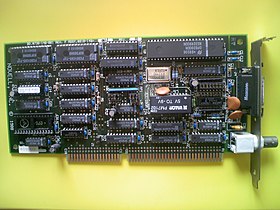Greetings, Bryce Biggs here, Strategy Lead @YourBigPic.
Here to tell you a few brief stories about aspects of pivoting, with particular reference to resourcing your organisation.
In looking at pivoting in business, we at YourBigPic™ apply a Wicked Challenges™ framework that we've developed which provides us with Six ITs™– tools to analyse key aspects of our Pivot quest.
One of the six ITs is Resource IT. When we are looking at carrying out a significant Pivot, resources are central to our strategy.
When I first started studying management, back in the day, we used to talk about men, machines, materials, money, information, and orders. Today we are a little more gender-sensitive, and we have relabeled some of those resources. But essentially, they are still the six key elements that underpin resource utilisation.
The three short stories that follow illustrate some key aspects of resources. Firstly, we must ensure they have the value we've attached to them. Secondly, we may have to make exceptions for some scarce – human - resources and allow them some leeway that we don't extend to others. And thirdly, when times are tough and there's a crisis, we need to be able to look at our resource base and see whether we can use it to make other products or create other services using what we already have.
It's essential to establish that the resources we have are realistically valued. George Carlin, the late comedian, had a hilarious skit about stuff, stuff being resources we acquire. He made the point that we get hooked up with stuff, which ends up dictating our lives.
The message from a business point of view is that we should look at our resources very carefully and decide whether they are essential to our purpose. If not, can we dispose of them or repurpose them?
Of course, the important thing is not to rely on resources that - when tested - turn out to be of lesser use than the value we have been attaching to them.

A vital resource issue is how we value our scarce resources. And this is quite crucial because often, our scarce resources are the ones that are challenging to us.
Back when IBM first started, everyone had to wear suits with collar and tie, and they had to be clean-shaven. There were other rules as well. You couldn't marry a colleague from within the organisation. And Thomas Watson was very strict about enforcing these values or ideas.
It's interesting, though, that at least one person in those early days - a man by the name of Dennis Miller - was able to have a beard. The question, of course, is why was he not treated like everybody else? The reason is that he and Mark Dean invented a particular computer component still in use today. It is referred to as an ISA expansion bus – ISA being short for Industry Standard Architecture. So, he was an innovative genius, and IBM needed him. And so, in his case, at least, they made an exception.

A further story about resources is a relatively recent one. Dyson, the UK company that makes high-tech vacuum cleaners and hair dryers, was able, at very short notice, to use its resources to produce ventilators which were in short supply during the COVID 19 pandemic.
And they were able to design these in just ten days. They used their existing resource base, together with their intellectual property, and came up with a different end product in response to the crisis that the world and the UK, in particular, was facing. So, being able to repurpose your resources can also be a crucial asset in times of crisis.


